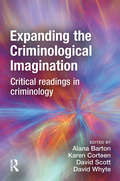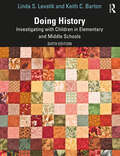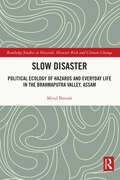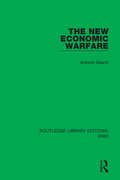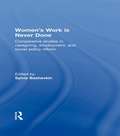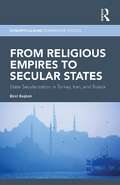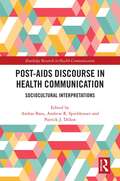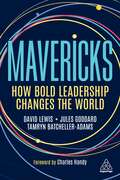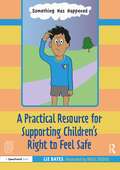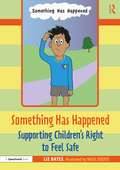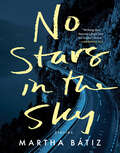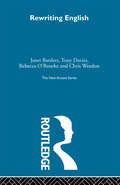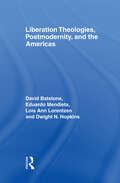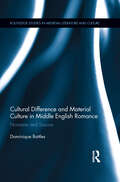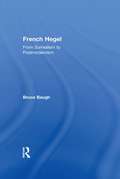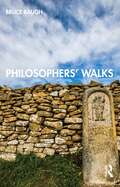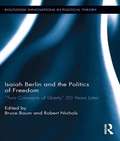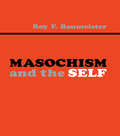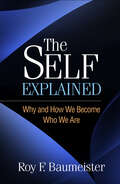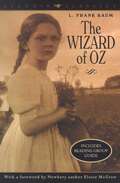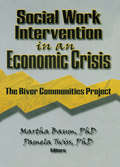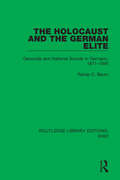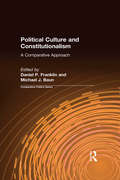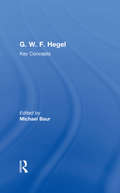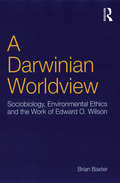Special Collections
Benetech’s Global Certified Accessible Titles
Description: Benetech’s GCA program is the first independent third-party EPUB certification to verify ebook accessibility. By creating content that is born accessible, publishers can meet the needs of all readers. Learn more: https://bornaccessible.benetech.org/
- Table View
- List View
Expanding the Criminological Imagination
by David Scott and Alana Barton and Karen Corteen and Dave WhyteThis book brings together a series of writings on the problems facing contemporary criminology, highlighting the main theoretical priorities of critical analysis and their application to substantive case studies of research in action. Its main aim is to establish the conceptual and practical foundations for a new generation of studies in criminology, and to set a new agenda for critical criminology. Each chapter will critically assess the main conceptual and empirical problems they have encountered in their research, and to bring to life the key theoretical debates within the discipline. This book will be essential reading for students seeking an understanding of the nature of the discipline of criminology and criminological research.
Doing History
by Keith C. Barton and Linda S. LevstikNow in its sixth edition, Doing History offers a unique perspective on teaching and learning history in the elementary and middle grades. Through case studies of teachers and students in diverse classrooms and from diverse backgrounds, it shows children engaging in authentic historical investigations, often in the context of an integrated social studies curriculum. The book is grounded in the view that children can engage in valid forms of historical inquiry—asking questions, collecting and analyzing evidence, examining the varied perspectives and experiences of people in the past, and creating evidence-based historical accounts and interpretations. Grounded in contemporary sociocultural theory and research, the text features vignettes in each chapter showing communities of teachers and students doing history in environments rich in literature, art, writing, and discussion. The authors explain how these classrooms reflect contemporary principles of teaching and learning, and thus, the descriptions not only provide specific examples of successful activities but also place them in a context that allows teachers to adapt and apply them in a wide range of settings. Doing History emphasizes diversity in two ways: Readers encounter students from a variety of backgrounds and see how their diverse experiences can form the foundation for learning, and they also see examples of how teachers can engage students with diverse experiences and perspectives in the past, including those that led to conflict and oppression. The book also discusses principles for working with English learners and newcomers, and it provides guidance in using multiple forms of assessment to evaluate the specifically historical aspects of children’s learning. Updates to this edition include updated historical and instructional examples to ensure currency, new suggestions for children’s literature to support good teaching, expanded attention to teaching about oppressed groups in history, and greater attention to when historical perspective taking is and is not appropriate.
Slow Disaster
by Mitul BaruahThis book presents a fascinating, ethnographic account of the challenges faced by communities living in Majuli, India, one of the largest river islands in the world, which has experienced immense socio-environmental transformations over the years, processes that are emblematic of the Brahmaputra Valley as a whole. Written in an engaging style, full of the author's insider perspectives, this insightful volume explores the processes of flooding and riverbank erosion in Majuli, including re-configuration of the island’s geographies, loss of local livelihoods, and large-scale displacement of the population. The book begins with an examination of the physical geography of Majuli and its ecological complexities, leading to discussion on the role of the state in water governance and hazard management, as well as popular resistance by the rural communities on the island. The book focuses on livelihoods as a way of offering economic context to living in challenging environmental conditions and examines the interactions between the state and a whole host of non-state actors, and the everyday, arbitrary functioning of the bureaucracy in a hazardscape. This volume is an invaluable resource for scholars interested in political ecology of hazards and vulnerability, water and hydraulic infrastructure, rural livelihoods and agrarian questions, state theorizations, island studies, and resistance and social movements, as well as those with an interest in northeast India more generally across various disciplines.
The New Economic Warfare
by Antonín BaschThis book, first published in 1942, examines the economic necessities, defensive and offensive, basic and strategic, involved in waging war. Written with total global war raging, it analyses the unprecedented demands placed on the economic system of a nation, and looks at the great shifts of productive effort and limits on consumption that were needed.
Women's Work is Never Done
by Sylvia BashevkinFirst published in 2002. Routledge is an imprint of Taylor & Francis, an informa company.
From Religious Empires to Secular States
by Birol BaşkanIn the 1920s and the 1930s, Turkey, Iran and Russia vehemently pursued state-secularizing reforms, but adopted different strategies in doing so. But why do states follow different secularizing strategies? The literature has already shattered the illusion that secularization of the state has been a unilinear, homogeneous and universal process, and has convincingly shown that secularization of the state has unfolded along different paths. Much, however, remains to be uncovered. This book provides an in-depth comparative historical analysis of state secularization in three major Eurasian countries: Turkey, Iran and Russia. To capture the aforementioned variation in state secularization across three countries that have been hitherto analyzed as separate studies, Birol Başkan adopts three modes of state secularization: accommodationism, separationism and eradicationism. Focusing thematically on the changing relations between the state and religious institutions, Başkan brings together a host of factors, historical, strategic and structural, to account for why Turkey adopted accommodationism, Iran separationism and Russia eradicationism. In doing so, he expertly demonstrates that each secularization strategy was a rational response to the strategic context the reformers found themselves in.
Post-AIDS Discourse in Health Communication
by Ambar BasuThis book examines the discourse of a "post-AIDS" culture, and the medical-discursive shift from crisis and death to survival and living. Contributions from a diverse group of international scholars interrogate and engage with the cultural, social, political, scientific, historical, global, and local consumptions of the term "post-AIDS" from the perspective of meaning-making on health, illness, and well-being. The chapters critique and connect meanings of "post-AIDS" to topics such as neoliberalism; race, gender, and advocacy; disclosure; relationships and intimacy; stigma and structural violence; family and community; migration; work; survival; normativity; NGOs, transnational organizations; aging and end-of-life care; the politics of ART and PrEP; mental illness; campaigns; social media; and religion. Using a range of methodological tools, the scholarship herein asks how "post-AIDS" or the "End of the Epidemic" is communicated and made sense of in everyday discourse, what current meanings are circulated and consumed on and around HIV and AIDS, and provides thorough commentary and critique of a "post-AIDS" time. This book will be an essential read for scholars and students of health communication, sociology of health and illness, medical humanities, political science, and medical anthropology, as well as for policy makers and activists.
Mavericks
by Jules Goddard and David Giles Lewis and Tamryn Batcheller-AdamsHow many of our business leaders truly embody the change needed in the world of work and beyond? Not nearly enough. This book shows you how to reclaim your power to make a difference, by unleashing your inner maverick. Organizations are where the world's most innovative and impactful talents lie; we have the ingenuity, the technology and the resources to change the world for the better. Discover how to awaken the maverick mindset in you; one that will question, debate and enhance. Mavericks are the key to answering some of the world' most pressing challenges; they don't settle for anything less, and neither should you. Mavericks shows you how being a maverick isn't about shooting from the hip and rocking the boat for the sake of it, it's about demanding better of yourself and your organization for the wider good. In Mavericks, business consultants, London Business School faculty members and authors David Lewis and Jules Goddard guide you through the five characteristics that you can develop to become a maverick leader. From passionate belief, an undeterred attitude, being resourceful, being directional and finally experimenting, these characteristics are the blueprint for you to grow into an iconic and positive change maker. The focus is not on what becoming a leader can do for you, but on what you can do to make the world a better place.
A Practical Resource for Supporting Children’s Right to Feel Safe
by Liz BatesFor effective use, this book should be purchased alongside the storybook. Both books can be purchased together as a set, Something Has Happened: A Storybook and Guide for Safeguarding and Supporting Children’s Right to Feel Safe [978-1-032-06912-8] This programme of activities, created to be used alongside the storybook, Something Has Happened, has been designed to help children develop their own internal measure of safety, and teaches them how to ask for help if they feel unsafe. The sessions and activities in this book directly correlate to episodes in the storybook Something Has Happened, covering the fundamental aspects of safeguarding as well as elements of the Protective Behaviours (PB) process. Taking adults and children through a wide range of discussion points and activities, all underpinned by clear guidance, it acts as a starting point to help children understand that being safe from harm is the most important right they have and that the trusted adults around them will always take action to believe and protect them. Key features of this resource include: Session plans that directly link to events in the Something Has Happened storybook Clear, detailed and accessible activity plans that can be used with whole classes, small groups or with individual children Photocopiable activity sheets With a concise and accessible introduction to the right to feel safe and Protective Behaviours, this is an invaluable resource for teachers, support staff and other professionals working with both primary and lower-secondary aged children.
Something Has Happened: Supporting Children’s Right to Feel Safe
by Liz BatesFor effective use, this book should be purchased alongside the guidebook. Both books can be purchased together as a set, Something Has Happened: A Storybook and Guide for Safeguarding and Supporting Children’s Right to Feel Safe [978-1-032-06912-8] Something has happened to Joe. Now he doesn’t feel safe; he feels sick, wants to cry and can’t even concentrate on his computer games. This carefully and sensitively written storybook has been created to enable conversations around safeguarding, teaching children about their right to feel safe, and what to do if, like Joe, they ever need help. With colourful and engaging illustrations, the story offers opportunities for discussion throughout, using Joe as a tool to help children understand their difficult feelings, who they can go to for help, and what they can do when it feels like nobody is listening. This storybook: Teaches children about the right to feel safe, the safety continuum, networks of support and persistence Offers advice that can be used by children in any situation, from disclosing abuse to talking about smaller worries Can be used with both primary and lower-secondary aged pupils as a whole class, in small groups or in one-to-one sessions Designed to be used alongside the professional guidebook, A Practical Resource for Supporting Children’s Right to Feel Safe, this is an essential tool for teachers, support staff and other professionals who want to teach children that being safe from harm is the most important right they have, and that the trusted adults around them will always take action to believe and protect them.
No Stars in the Sky
by Martha BátizA new collection of hard-hitting and intimate stories by award-winning Mexican Canadian author Martha Bátiz. The nineteen stories in No Stars in the Sky feature strong but damaged female characters in crisis. Tormented by personal conflicts and oppressive regimes that treat the female body like a trophy of war, the women in No Stars in the Sky face life-altering circumstances that either shatter or make them stronger, albeit at a very high price. True to her Latin American roots, Bátiz shines a light on the crises that concern her most: the plight of migrant children along the Mexico–U.S. border, the tragedy of the disappeared in Mexico and Argentina, and the generalized racial and domestic violence that has turned life into a constant struggle for survival. With an unflinching hand, Bátiz explores the breadth of the human condition to expose silent tragedies too often ignored.
Rewriting English
by Janet Batsleer and Tony Davies and Chris Weedon and Rebecca O'RourkeFirst Published in 2002. Routledge is an imprint of Taylor & Francis, an informa company.
Liberation Theologies, Postmodernity and the Americas
by David Batstone and Eduardo Mendieta and Dwight N. Hopkins and Lois Ann LorentzeFirst Published in 1997. Routledge is an imprint of Taylor & Francis, an informa company.
Cultural Difference and Material Culture in Middle English Romance
by Dominique BattlesThis book explores how the cultural distinctions and conflicts between Anglo-Saxons and Normans originating with the Norman Conquest of 1066 prevailed well into the fourteenth century and are manifest in a significant number of Middle English romances including King Horn, Havelok the Dane, Sir Orfeo, Sir Gawain and the Green Knight, and others. Specifically, the study looks at how the material culture of these poems (architecture, battle tactic, landscapes) systematically and persistently distinguishes between Norman and Anglo-Saxon cultural identity. Additionally, it examines the influence of the English Outlaw Tradition, itself grounded in Anglo-Saxon resistance to the Norman Conquest, as expressed in specific recurring scenes (disguise and infiltration, forest exile) found in many Middle English romances. In the broadest sense, a significant number of Middle English romances, including some of the most well-read and often-taught, set up a dichotomy of two ruling houses headed by a powerful lord, who compete for power and influence. This book examines the cultural heritage behind each of these pairings to show how poets repeatedly contrast essentially Norman and Anglo-Saxon values and ruling styles.
French Hegel
by Bruce BaughFirst published in 2003. Routledge is an imprint of Taylor & Francis, an informa company.
Philosophers’ Walks
by Bruce BaughNietzsche, Kierkegaard, Virginia Woolf, Samuel Taylor Coleridge, André Breton, Rousseau, Simone de Beauvoir: who could imagine a better group of walking companions? In this engaging and invigorating book, Bruce Baugh takes us on a philosophical tour, following in the footsteps and thoughts of some great philosophers and thinkers. How does walking reveal space and place and provide a heightened sense of embodied consciousness? Can walking in André Breton’s footsteps enable us to "remember" Breton’s experiences? A chapter on Sartre and Beauvoir investigates walking in relation to anxiety and our different ways of responding to our bodies. Walking in the Quantocks, Baugh seeks out the connection between Coleridge’s walking and his poetic imagination. With Rousseau and Nietzsche, he examines the link between solitary mountain walks and great thoughts; with Kierkegaard, he looks at the urban flâneur and the disjunction between outward appearances and spiritual inwardness. Finally, in Sussex and London, Baugh explores how Virginia Woolf transposed a Romantic nature pantheism to London in Mrs. Dalloway. Philosophers’ Walks provides a fresh and imaginative reading of great philosophers, offering a new way of understanding some of their major works and ideas.
Isaiah Berlin and the Politics of Freedom
by Bruce Baum and Robert NicholsSince his death in 1997, Isaiah Berlin’s writings have generated continual interest among scholars and educated readers, especially in regard to his ideas about liberalism, value pluralism, and "positive" and "negative" liberty. Most books on Berlin have examined his general political theory, but this volume uses a contemporary perspective to focus specifically on his ideas about freedom and liberty. Isaiah Berlin and the Politics of Freedom brings together an integrated collection of essays by noted and emerging political theorists that commemorate in a critical spirit the recent 50th anniversary of Isaiah Berlin’s famous lecture and essay, "Two Concepts of Liberty." The contributors use Berlin’s essay as an occasion to rethink the larger politics of freedom from a twenty-first century standpoint, bringing Berlin’s ideas into conversation with current political problems and perspectives rooted in postcolonial theory, feminist theory, democratic theory, and critical social theory. The editors begin by surveying the influence of Berlin’s essay and the range of debates about freedom that it has inspired. Contributors’ chapters then offer various analyses such as competing ways to contextualize Berlin’s essay, how to reconsider Berlin’s ideas in light of struggles over national self-determination, European colonialism, and racism, and how to view Berlin’s controversial distinction between so-called "negative liberty" and "positive liberty." By relating Berlin’s thinking about freedom to competing contemporary views of the politics of freedom, this book will be significant for both scholars of Berlin as well as people who are interested in larger debates about the meaning and conditions of freedom.
Masochism and the Self
by Roy F. BaumeisterThis volume provides an integrative theory firmly grounded in current psychology of the self, and offers a fresh, compelling account of one of psychology's most enigmatic behavior patterns. Professor Baumeister provides comprehensive coverage of historical and cross-cultural theories and empirical data on masochism and presents recent, original data drawn from a large data set of anonymous masochistic scripts of fantasies and favorite experiences. Drawn from the latest social psychological research and theories, Professor Baumeister returns the emphasis to the original and proto-typical form of masochism -- sexual masochism - - and explains these phenomena as a means of releasing the individual from the burden of self-awareness. It is the first volume to present a psychological theory compatible with the mounting evidence that most masochists are not mentally ill nor does masochism derives from sadism. Instead, Professor Baumeister finds that masochism emerges as an escapist response to the problematic nature of selfhood and he attempts to foster an understanding of sexual masochism that emphasizes both "escape from self" and "construction of meaning" hypotheses. The book is directed at all those interested in the self and identity in paradoxical behavior patterns and in the construction of meaning, presenting specific clinical recommendations.
The Self Explained
by Roy F. BaumeisterThe idea of the self is immediately familiar to everyone, yet elusive to define and understand. From pioneering researcher Roy F. Baumeister, this volume synthesizes a vast body of knowledge to provide a panoramic view of the human self--how it develops and functions, why it exists, and what problems it encounters on the journey through life. What are the benefits of self-knowledge, and how attainable is it? Do we have one self, or many? What is the relationship of self and society? In 28 concise chapters, Baumeister explains complex concepts with clarity and insight. He reveals the central role played by the self in enabling both individuals and cultures to thrive.
The Wizard of Oz
by L. Frank Baum and Eloise McgrawHailed as the first original American fairy tale, The Wizard of Oz inspired countless sequels and imitations, as well as the classic American musical film and the Broadway musical The Wiz.
In L. Frank Baum's imaginative story, Dorothy Gale takes a magical journey from the American heartland into the wonderful land of Oz to meet the Tin Woodman, the Scarecrow, and the Cowardly Lion.
Social Work Intervention in an Economic Crisis
by Martha Baum and Pamela TwissWith the collapse of the steel industry in the 1980s, economic devastation hit the Pittsburgh, Pennsylvania, region. Social Work Intervention in an Economic Crisis strives to deepen understanding of the impact of the economic tragedy in the Pittsburgh region and to present social workers’efforts to enhance recovery. This case study serves as a model for social workers, human service educators and agency personnel, public health professionals, community organizers, policymakers, economic strategists, and researchers in social work, public health, sociology, anthropology, and political science to design and implement human service interventions for similar communities using techniques of action research, community organization, and demonstration projects.Social Work Intervention in an Economic Crisis shows readers relatively simple and highly effective ways of assessing the social-economic situation in their given geographical area. This allows professionals to be in touch with their surrounding communities and estimate the clientele to be served, their particular needs, and their abilities to access services. Chapters in Social Work Intervention in an Economic Crisis describe the responses of local institutions; the roles of informal and formal support networks; and the economic devastation inflicted upon individuals, households, and whole communities. To this end, Hide Yamatani, Lambert Maguire, Robin K. Rogers, and Mary Lou O’Kennedy take the socioeconomic “pulse” of six communities, launching a longitudinal monitoring effort that can be replicated elsewhere for long-range planning and intervention; Martha Baum, Barbara K. Shore, and Kathy Fleissner address the special problems women face; Mary Page and Myrna Silverman focus upon the elderly and their families; Phyllis D. Coontz, Judith A. Martin, and Edward W. Sites look at fathers facing altered childrearing; and Lambert Maguire and Hide Yamatani discuss youth facing altered economic opportunities. With this knowledge in hand, readers acquire skills for: using action research to assess how economic tragedy affects people’s lives mobilizing appropriate actors to engage in intervention learning from community groups and leaders about their concerns to work with them rather than for them recognizing the properties of community cohesion versus fragmentation as they affect efforts of renewal identifying individuals and families suffering most under economic devastation realizing the limits of micro-level intervention generating macro policies at the state and federal levels disseminating findings from action research and intervention/demonstration efforts Finally, Social Work Intervention in an Economic Crisis offers proposals for new societal mechanisms that might reduce the impact of future recessions. The findings and policy proposals set forth in this book help households and institutions deal with the effects of economic change which continue to afflict many families and small communities in the 1990s.
The Holocaust and the German Elite
by Rainer C. BaumThis book, first published in 1981, is a study of the social and political sources of amoral political rule in modern times. Only a moral indifference unparalleled in history made the Holocaust possible, and by linking the German imperial ambitions to the meaningless suffering and death in the concentration camps, the true significance of the Holocaust is revealed in all its horror. Understanding this requires an understanding of the social forces that produced a national amorality among Germany’s elites. The author suggests three contributive causes: a marked ambiguity among Germans in their attitude towards social values; the development of a cadre characterized by status insecurity; and an inability to resolve internal conflict.
Political Culture and Constitutionalism
by Daniel P. Franklin and Michael J. BaunThis work is a cross-national examination of the relationship between political culture and constitutionalism. The countries studied include Nigeria, Turkey and Japan. Questions explored include whether constitutions must evolve and whether constitutionalism is only a western concept.
G. W. F. Hegel
by Michael BaurThe thought of G. W. F. Hegel (1770 -1831) has had a deep and lasting influence on a wide range of philosophical, political, religious, aesthetic, cultural and scientific movements. But, despite the far-reaching importance of Hegel's thought, there is often a great deal of confusion about what he actually said or believed.G. W. F. Hegel: Key Concepts provides an accessible introduction to both Hegel's thought and Hegel-inspired philosophy in general, demonstrating how his concepts were understood, adopted and critically transformed by later thinkers. The first section of the book covers the principal philosophical themes in Hegel's system: epistemology, metaphysics, philosophy of mind, ethical theory, political philosophy, philosophy of nature, philosophy of art, philosophy of religion, philosophy of history and theory of the history of philosophy. The second section covers the main post-Hegelian movements in philosophy: Marxism, existentialism, pragmatism, analytic philosophy, hermeneutics and French poststructuralism.The breadth and depth of G. W. F. Hegel: Key Concepts makes it an invaluable introduction for philosophical beginners and a useful reference source for more advanced scholars and researchers.
A Darwinian Worldview
by Brian BaxterDarwin's theory of evolution by natural selection is considered in its application to human beings in this book. Brian Baxter examines the various sociobiological approaches to the explanation of human behaviour which view the human brain, and so the human mind, as the product of evolution, and considers the main arguments for and against this claim. In so doing he defends the approaches against some common criticisms, such as the charge that they are reductionist and dehumanising. The implications of these arguments for the social sciences and humanities are assessed, as is the naturalistic view of ethics to which they lead. A key issue examined in the book is the connection between this Darwinist perspective on human beings and modern environmental ethics, which also often assume that human beings are part of an evolved living world. The implications of these positions for the meaningfulness of human life are also examined. Throughout the discussion the positions in sociobiology and environmental ethics developed by Edward O. Wilson are taken as an exemplar of the characteristic features of a Darwinian worldview, and the arguments of Wilson and his chief critics are thoroughly examined.
